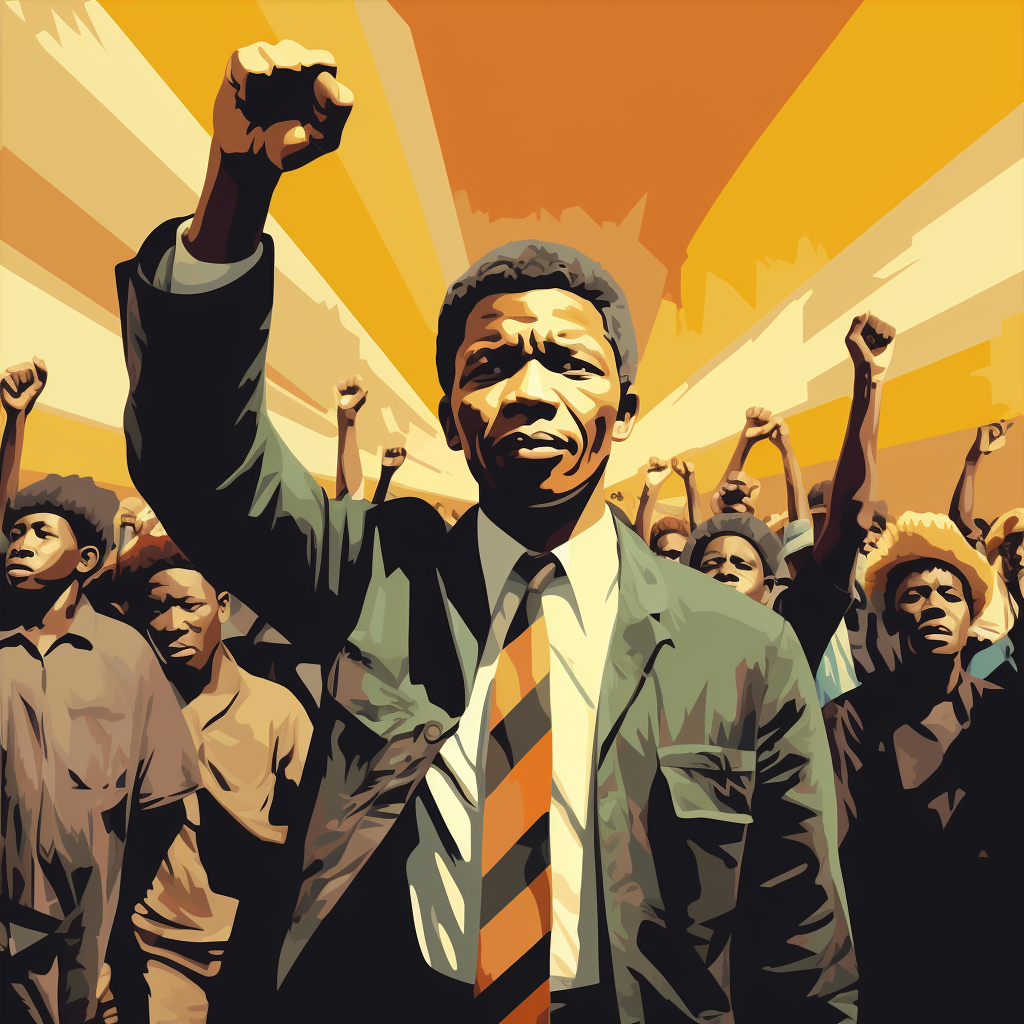Nelson Mandela and the Rivonia Trial

The Rivonia Trial, a pivotal moment in Nelson Mandela's life and in South African history, showcased his exceptional ability to articulate a vision with profound conviction.
During the trial, Mandela delivered a powerful speech that not only highlighted his communication skills but also solidified his status as a symbol of resistance against apartheid. His speech resonated far beyond the courtroom, leaving a lasting impact on the fight for freedom and equality in South Africa.
Factual Details of Mandela's Speech at the Rivonia Trial
Year: 1964
Location: Pretoria, South Africa
Event: Nelson Mandela's Speech during the Rivonia Trial
Nelson Mandela, along with several other ANC leaders, was put on trial in what came to be known as the Rivonia Trial. Charged with sabotage and facing the possibility of the death penalty, Mandela chose to use the platform to articulate his vision for a democratic and free society in South Africa, where all citizens, regardless of race, would have equal rights.
In his speech, Mandela famously stated that the ideals he fought for were ones he hoped to live for but was prepared to die for. This statement and the speech as a whole were a powerful articulation of his commitment to equality and freedom.
Key Outcomes:
- Mandela's speech became a defining moment in the anti-apartheid movement.
- The eloquence and conviction of his words garnered international attention and support.
- His speech highlighted the injustices of apartheid and outlined a vision of an inclusive and democratic South Africa.
Leadership Lessons from Mandela’s Rivonia Trial Speech
Power of Vision and Conviction:
- Mandela’s speech exemplified the power of having a clear vision and the conviction to stand by it, even in the face of immense personal risk.
Eloquence in Communication:
- His ability to articulate his thoughts and ideals eloquently under pressure demonstrated the importance of effective communication in leadership.
Moral Courage and Integrity:
- Mandela’s willingness to sacrifice his freedom and even his life for his beliefs was a profound display of moral courage and integrity.
Inspiring Change Through Words:
- The impact of his speech showed how inspiring and persuasive communication can mobilize people and influence change.
Steadfast Commitment to Principles:
- His unwavering commitment to the principles of equality and democracy, even when confronted with the possibility of the death penalty, was a testament to his deep dedication to these ideals.
How Today's Leaders Can Use This Lesson
- Embrace the power of articulating a clear and compelling vision, especially in challenging or high-stakes situations.
- Develop and refine the ability to communicate effectively, understanding that eloquence can be a powerful tool in inspiring and influencing others.
- Exhibit moral courage and integrity, particularly when your principles are tested.
- Use your platform and words to inspire change and mobilize support for just causes.
- Demonstrate a steadfast commitment to your core principles and values, even in the face of personal risk or sacrifice.
Concluding Thoughts
Nelson Mandela's speech during the Rivonia Trial remains a shining example of how visionary leadership, articulated with conviction and eloquence, can inspire change and leave a lasting imprint on history. His legacy continues to inspire leaders worldwide to stand firmly for justice and equality.
Your Reflection
- Reflect on how you can effectively articulate and communicate your vision, especially under pressure or in challenging circumstances.
- Consider ways to demonstrate moral courage and maintain integrity in your leadership, particularly when facing difficult choices.
- Think about how your words and actions can inspire and mobilize others towards positive societal change.



